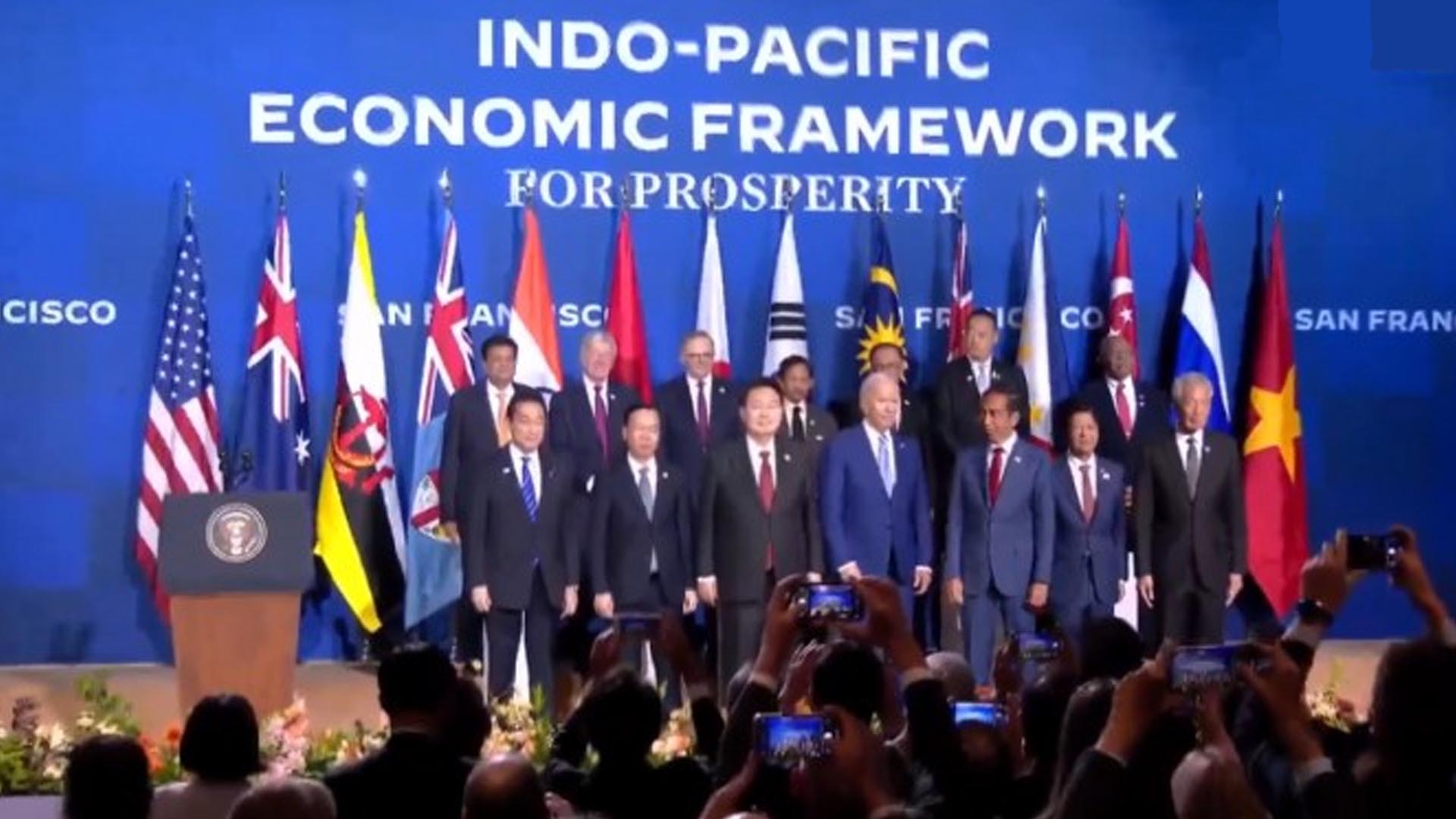The Philippines and its 13 Indo-Pacific partners have signed the supply chain agreement and made a substantial conclusion on the negotiations for clean and fair economy agreements under the Indo-Pacific Economic Framework (IPEF).
President Ferdinand R. Marcos Jr. participated in the 2nd IPEF Leaders’ Meeting in San Francisco, California on Friday (Manila time), joining the bloc in making a commitment to implement measures that ensure supply chain resilience, promote green energy and combat corruption.
The IPEF leaders, in a joint statement, said they have delivered on their goals in record time.
“Our ongoing cooperation through these agreements will promote workers’ rights, increase our capacity to prevent and respond to supply chain disruptions, strengthen our collaboration on the transition to clean economies, and combat corruption and improve the efficiency of tax administration,” the statement said.
“Thirteen of us have made progress on and continue to work towards a mutually beneficial Trade Pillar outcome that advances workers’ rights through strong and enforceable labor standards; improves economic opportunities for families, ranchers and farmers, and micro-, small-, and medium-sized enterprises; and promotes fair, open, and rules-based trade, accompanied by technical assistance and economic cooperation, benefiting all segments of society,” it added.
The 14 IPEF countries acknowledged that with the latest developments and new initiatives, they would continue to strengthen regional cooperation and shared commitments to address emerging issues, drive innovation, and boost flows of commerce, trade, and investment across regional markets.
They agreed to launch the IPEF Critical Minerals Dialogue to foster closer collaboration on strengthening IPEF critical mineral supply chains and boosting regional economic competitiveness.
The member countries said the framework would also explore additional initiatives to advance cooperation and dialogue on areas of mutual interest, such as energy security and technology.
They also emphasized the importance of deepening people-to-people ties and promoting IPEF networks to share ideas and expertise.
The 14 IPEF partners also recognized that mobilizing high-standard public and private financing, including concessional financing at an increased scale as appropriate, would facilitate investments in their supply chain resilience and clean economy transitions.
“Through our ongoing engagement and cooperation, IPEF will enhance our ability to promote workers’ rights, protect the environment, and create decent work and inclusive, sustainable economic opportunities in a future of peace, stability, development, and prosperity for all our people,” the statement read.
United States President Joe Biden mentioned many opportunities and ideas to attract private sector investments, citing the solar power investments in the Philippines, the offshore wind in Thailand and Indonesia, and the joint investment between the United States and India on energy storage.
Biden said the IPEF leaders have also agreed to fight corruption and improve tax administration.
“Every business leader I’ve talked to and my colleagues have, they’re more likely to invest in a region if there’s less corruption, more transparency. And that’s exactly what this agreement does and would show them,” Biden said after the agreement signing.
The United States launched in May 2022 the IPEF with Australia, Brunei Darussalam, India, Indonesia, Japan, the Republic of Korea, Malaysia, New Zealand, the Philippines, Singapore, Thailand, and Vietnam. Fiji is the newest member.
The 14 IPEF partners represent 40 percent of global Gross Domestic Product and 28 percent of global goods and services trade.
Since its launch, the IPEF Partners have engaged in intensive discussions covering the four pillars of the framework: Trade, Supply Chains, Clean Economy (including clean energy, decarbonization and infrastructure), and Fair Economy (tax and anti-corruption).
The framework aims to advance resilience, sustainability, inclusiveness, economic growth, fairness, and competitiveness for the 14 member countries.
It also seeks to provide tangible benefits that fuel economic activity and investment, promote sustainable and inclusive growth and benefit workers and consumers within the region.
The Philippines and the US will co-host the 2024 Indo-Pacific Business Forum in Manila in March, which will further establish the Philippines as a key hub for regional supply chains and high-quality investment. (PNA)






















